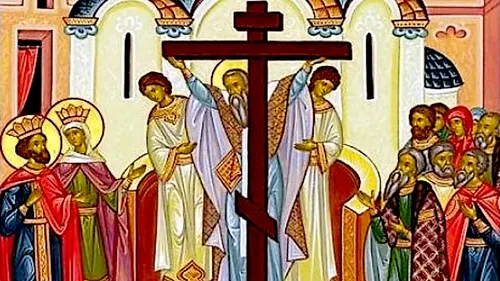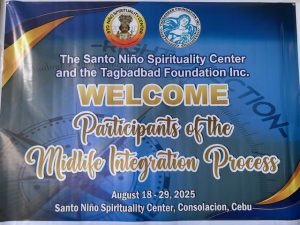On Tuesday, September 30, 2025, at 10:00 PM, a magnitude 6.7 earthquake struck the northern part of Cebu, Philippines. The epicenter was located offshore near Bogo, Cebu, and the quake caused widespread destruction and loss of life. As of the latest reports, 72 people have died, 294 are injured, and over 170,000 individuals have been affected, with 20,000 still displaced from their homes.
Many homes and buildings collapsed. Roads, bridges, and even the centuries-old façade of a historic church were destroyed. But in the midst of this devastation, a powerful sign of hope remained: the Blessed Sacrament, the main altar, and the image of St. Rose of Lima remained untouched. In the rubble, God still speaks.
Neighboring towns also suffered similar destruction. For many, natural disasters are seen as wake-up calls—a reminder to return to God, to reflect, to repent. As a nation with deep Christian roots, we are challenged to look honestly at how we live, how we govern, and how we serve. Sadly, many in positions of power—politicians and officials—remain more focused on greed than on genuine, honest service to God and country.
In response, Pope Leo XIV has extended his prayers, blessings, and sympathies to the people of Cebu. He prays for the eternal rest of the victims and for strength and healing for all who have survived.
In times like this, we are all called to act—spiritually and materially. Let us open our hearts and share what we can: food, clothes, shelter, prayers, even just our presence. Generosity is healing. It brings comfort. It brings hope.
This Sunday’s readings remind us to put our trust in God, even when life seems unclear and overwhelming. We cannot rely solely on human strength—we need God’s grace.
In the First Reading, the prophet Habakkuk cries out to God in the face of injustice and suffering. And God answers with a promise: “The just shall live by faith.” Even when tragedy strikes, faith is our anchor.
The Psalm invites us to worship God with open hearts. “If today you hear His voice, harden not your hearts.” We are reminded not to close ourselves off to God’s presence—even in pain.
In the Second Reading, St. Paul encourages Timothy to remain strong in his mission and faithful to sound teaching. Paul reminds him—and us—that even a small faith, when rekindled by the Holy Spirit, becomes a powerful force. It takes courage and trust in God’s power, love, and wisdom to keep living our faith boldly.
The gospel from St. Luke offers us the image of faith as small as a mustard seed. Jesus teaches that even a tiny seed of faith can do great things. But more importantly, He reminds us that being His follower means more than just believing—it means being faithful servants.
Let’s explore three key lessons from today’s Gospel:
First, Jesus teaches His disciples that faith grows when we patiently trust in God, even if we don’t see immediate results. What He asks of us is simple: obedience—to serve with a willing heart.
Second, Jesus reminds us that serving God is not about seeking praise or recognition. We are not to act just to be thanked. Like the servant who continues working after his master returns, we are called to go beyond what is expected, to serve with a humble heart.
Third, Jesus teaches us that service flows from love and commitment because faith and service are deeply connected. True service is not about rewards—it’s about doing what is right, out of love for God. It’s about showing up, staying faithful, and giving our best—even when no one sees.
As we reflect on this message from “The Dictate of the Heart,” may we allow the Word of God to shape our hearts. Let us keep our faith alive and active—especially in moments of loss, suffering, or uncertainty.
Jesus calls us to live each day in hope, love, and faithful obedience. And in doing so, we become His true disciples rooted not in fear, but in trust.
God bless us all.
Fr. Arlon, OSA
——————
El Dictado del Corazón
Vigésimo-Séptimo Domingo del Tiempo Ordinario – Ciclo C
- Habacuc 1, 2-3; 2, 1-4
- Salmo 94 (95), 1-2. 6-9
- 2 Timoteo 1, 6-8. 13-14
- Lucas 17, 5-10
El martes 30 de septiembre de 2025, a las 10:00 de la noche, un terremoto de magnitud 6.7 sacudió la parte norte de Cebú, Filipinas. El epicentro se localizó en el mar, cerca de la ciudad de Bogo, y el sismo causó una gran destrucción y pérdida de vidas humanas. Según los reportes más recientes, 72 personas han fallecido, 294 están heridas y más de 170,000 personas se han visto afectadas, de las cuales 20,000 siguen desplazadas de sus hogares.
Muchas casas y edificios se derrumbaron. Caminos, puentes e incluso la fachada centenaria de una iglesia histórica fueron destruidos. Pero en medio de esta devastación, quedó un poderoso signo de esperanza: el Santísimo Sacramento, el altar principal y la imagen de Santa Rosa de Lima permanecieron intactos. En los escombros, Dios sigue presente.
Las comunidades vecinas también sufrieron una destrucción similar. Para muchos, los desastres naturales se perciben como llamados de atención: una invitación a volver a Dios, a reflexionar, a arrepentirse. Como nación con profundas raíces cristianas, se nos desafía a mirar con honestidad cómo vivimos, cómo gobernamos y cómo servimos. Tristemente, muchos de los que están en el poder, políticos y funcionarios, siguen enfocados más en la codicia que en un servicio auténtico y honesto a Dios y a la patria.
En respuesta, el Papa León XIV ha enviado sus oraciones, bendiciones y muestras de cercanía al pueblo de Cebú. Ora por el eterno descanso de las víctimas y por fortaleza y sanación para todos los sobrevivientes.
En momentos como este, todos estamos llamados a actuar, espiritualmente y también materialmente. Abramos el corazón y compartamos lo que podamos: comida, ropa, refugio, oración, o incluso solo nuestra presencia. La generosidad sana. Trae consuelo. Trae esperanza.
Las lecturas de este domingo nos invitan a poner nuestra confianza en Dios, aun cuando la vida parezca incierta y abrumadora. No podemos apoyarnos solamente en nuestras fuerzas humanas, necesitamos la gracia de Dios.
En la Primera Lectura, el profeta Habacuc clama a Dios ante la injusticia y el sufrimiento. Y Dios le responde con una promesa: “El justo vivirá por su fe.” Aun cuando llega la tragedia, la fe es nuestro ancla.
El Salmo nos invita a adorar a Dios con un corazón abierto: “Ojalá escuchen hoy la voz del Señor: no endurezcan el corazón.” Se nos recuerda no cerrarnos a la presencia de Dios, ni siquiera en medio del dolor.
En la Segunda Lectura, San Pablo anima a Timoteo a mantenerse firme en su misión y fiel a la enseñanza sana. Le recuerda, a él y a nosotros, que incluso una fe pequeña, reavivada por el Espíritu Santo, se convierte en una fuerza poderosa. Se necesita valor y confianza en el poder, el amor y la sabiduría de Dios para vivir la fe con valentía.
En el Evangelio según San Lucas, Jesús nos ofrece la imagen de una fe del tamaño de una semilla de mostaza. Él nos enseña que incluso una fe pequeña puede hacer grandes cosas. Pero, más importante aún, nos recuerda que ser su discípulo significa más que creer: significa ser siervos fieles.
Exploremos tres enseñanzas clave del Evangelio de hoy:
Primero, Jesús enseña que la fe crece cuando confiamos pacientemente en Dios, aunque no veamos resultados inmediatos. Lo que Él nos pide es simple: obediencia, servir con un corazón dispuesto.
Segundo, Jesús nos recuerda que servir a Dios no se trata de buscar aplausos o reconocimiento. No debemos actuar sólo para ser reconocidos. Como el siervo que sigue trabajando tras el regreso de su amo, estamos llamados a ir más allá de lo esperado, a servir con humildad.
Tercero, Jesús nos enseña que el servicio nace del amor y del compromiso, porque la fe y el servicio están profundamente unidos. El verdadero servicio no busca recompensas, se trata de hacer lo correcto, por amor a Dios. Se trata de estar presentes, permanecer fieles y dar lo mejor de nosotros, aunque nadie nos vea.
Al reflexionar sobre este mensaje del Dictado del Corazón, permitamos que la Palabra de Dios transforme nuestro corazon. Mantengamos viva y activa nuestra fe, especialmente en los momentos de pérdida, sufrimiento o incertidumbre.
Jesús nos llama a vivir cada día con esperanza, amor y obediencia fiel. Y al hacerlo, nos convertimos en sus verdaderos discípulos, no arraigados en el miedo, sino en la esperanza.
Que Dios nos bendiga a todos.
P. Arlon, OSA










